The Interactive Poster Series

From October through December of 2018, WI+RE put together a 6-week interactive poster series in campus libraries asking students about their favorite research strategies. Each week, there was a new question, ranging from “What are your favorite strategies for choosing a research topic?” to “What are your favorite strategies for writing a reference list or works cited page?” Students had the option to put a sticker on their favorite answer or write in their own answer.
Some answer spaces could be flipped open to reveal a link to a relevant resource. For example, flipping over the answer “Brainstorm topics of interest” in the above poster would reveal a link to our Mapping Your Research Ideas tutorial.
The 1st poster from our new survey poster series is up! Here it is pictured next to some early prototypes. Take a 2 minute study break @UCLASciLibs (Biomed Lib) to try it out. We'll be hosting related FB and Twitter polls and may expand to Powell and YRL, so stay tuned! #research pic.twitter.com/zt93Zwwp16
— UCLA WI+RE (@WIREbruin) July 31, 2018
We are so excited about our fall research series! Keep an eye out for posters in Powell Library, the Biomedical Library, and other locations across campus for a chance to share your research process and learn about others' too! #WIREresources #research #researchstrategies pic.twitter.com/3z7Mjq4tBw
— UCLA WI+RE (@WIREbruin) October 11, 2018
At the end of each week, we tallied up the results and created a video that goes through the most popular answers and offers more helpful resources. Check out one of the videos below!
Thank you all for participating in our first week of the interactive poster series! Here's what you all shared about your favorite strategies for choosing a research topic. Stay tuned for a summary of week 4 soon!#WIREresources #research pic.twitter.com/kHV33QnsFj
— UCLA WI+RE (@WIREbruin) October 30, 2018
Redefining Learning Outcomes
When we began this project, our primary goal was to help students understand the role of subject librarians. After some deliberation, we realized that this learning outcome was too library-centered — we needed a learning outcome that would be more beneficial to a wider group of learners. So we changed the focus of our project to when, why, and how to get research help at the library.
Then we took it one step further. We thought, “What if we could frame this project as a dialogue with students? What if we could learn about their research strategies, and provide some helpful tips at the same time?” We wanted to engage with students about their research experience, and reframe the library as a place where learners can authentically share their educational experiences. The flow chart below shows the evolution of learning outcomes.

This next graphic shows the twofold goal of the interactive poster series.
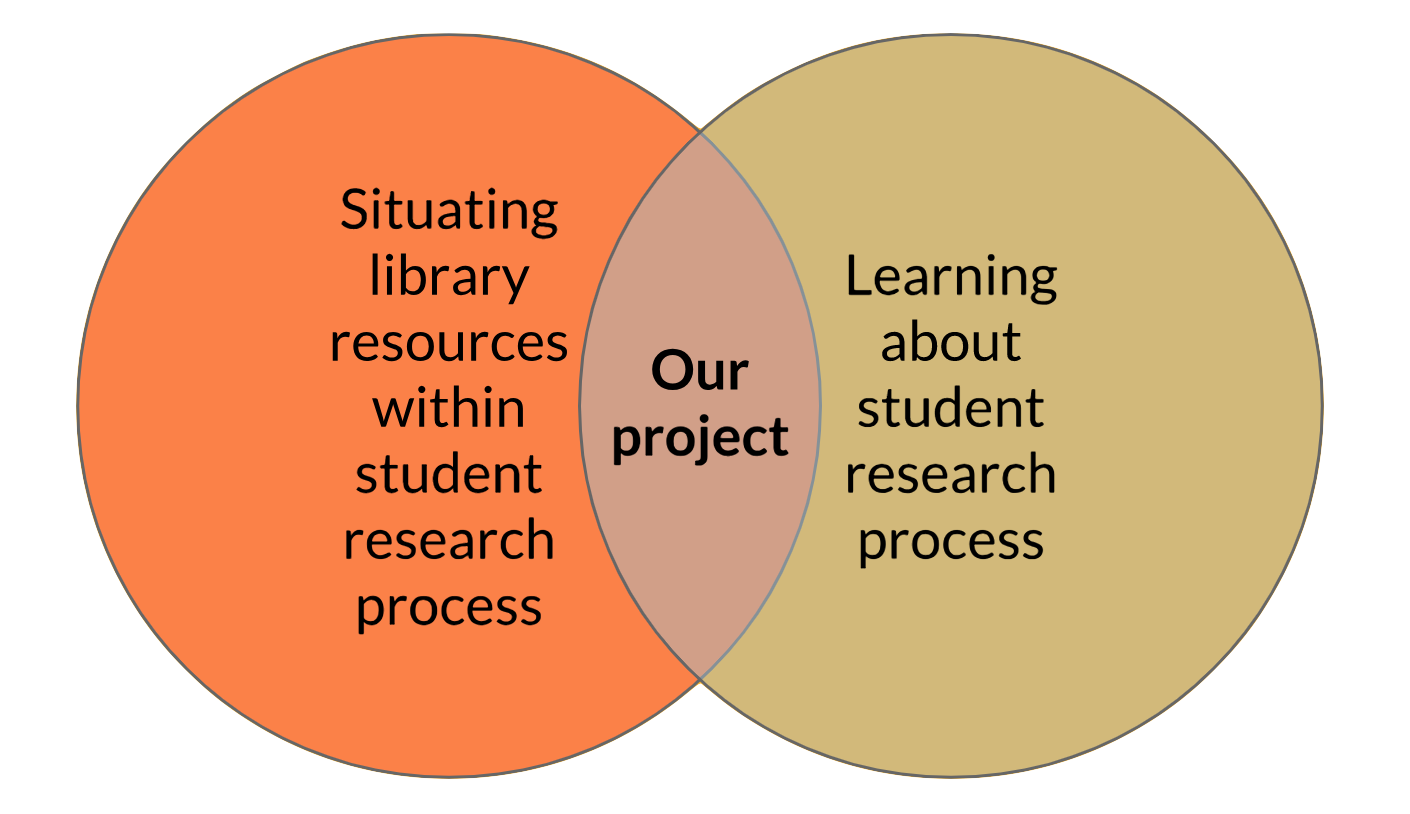
Prototypes
Check out early prototypes for the project below!
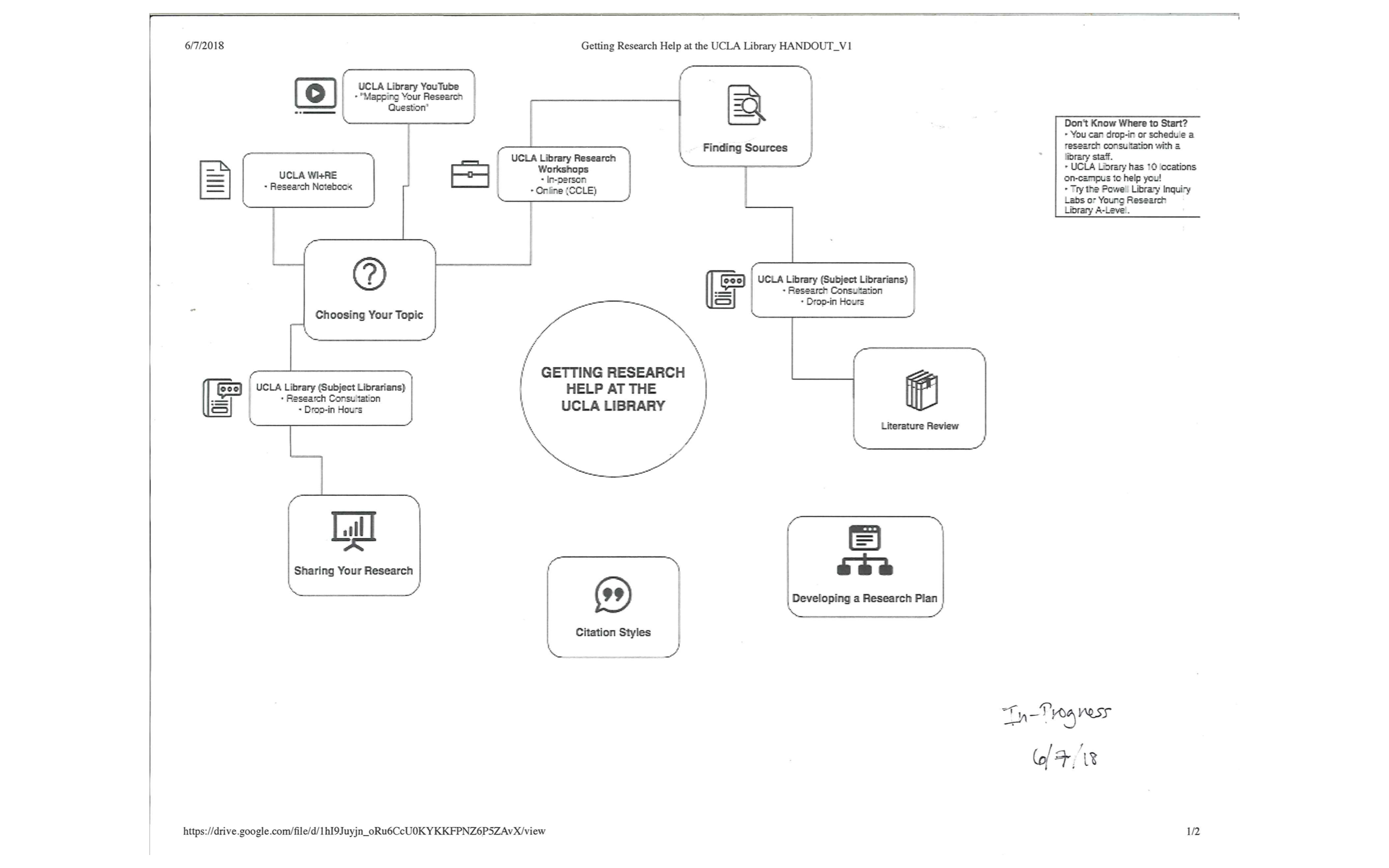
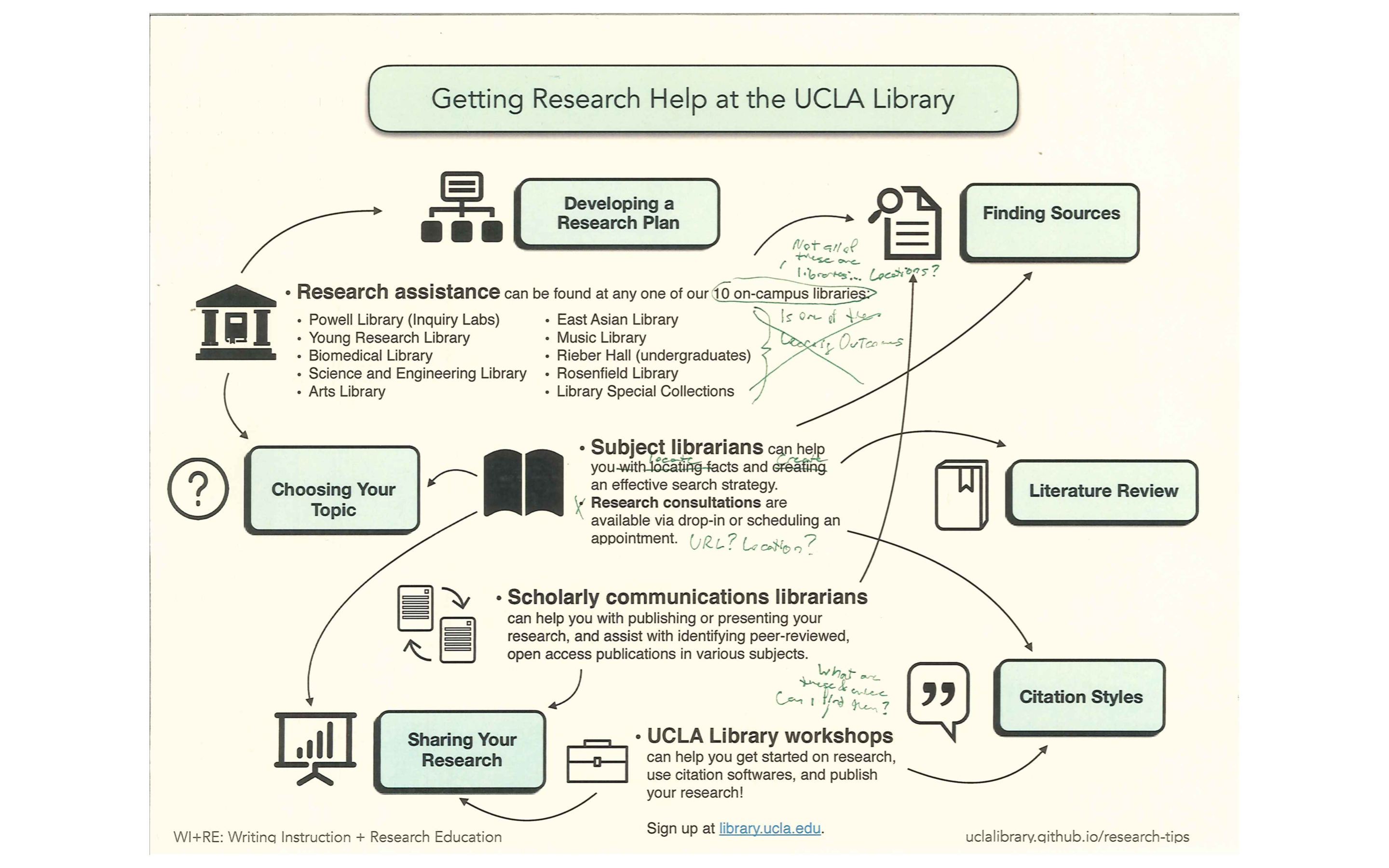
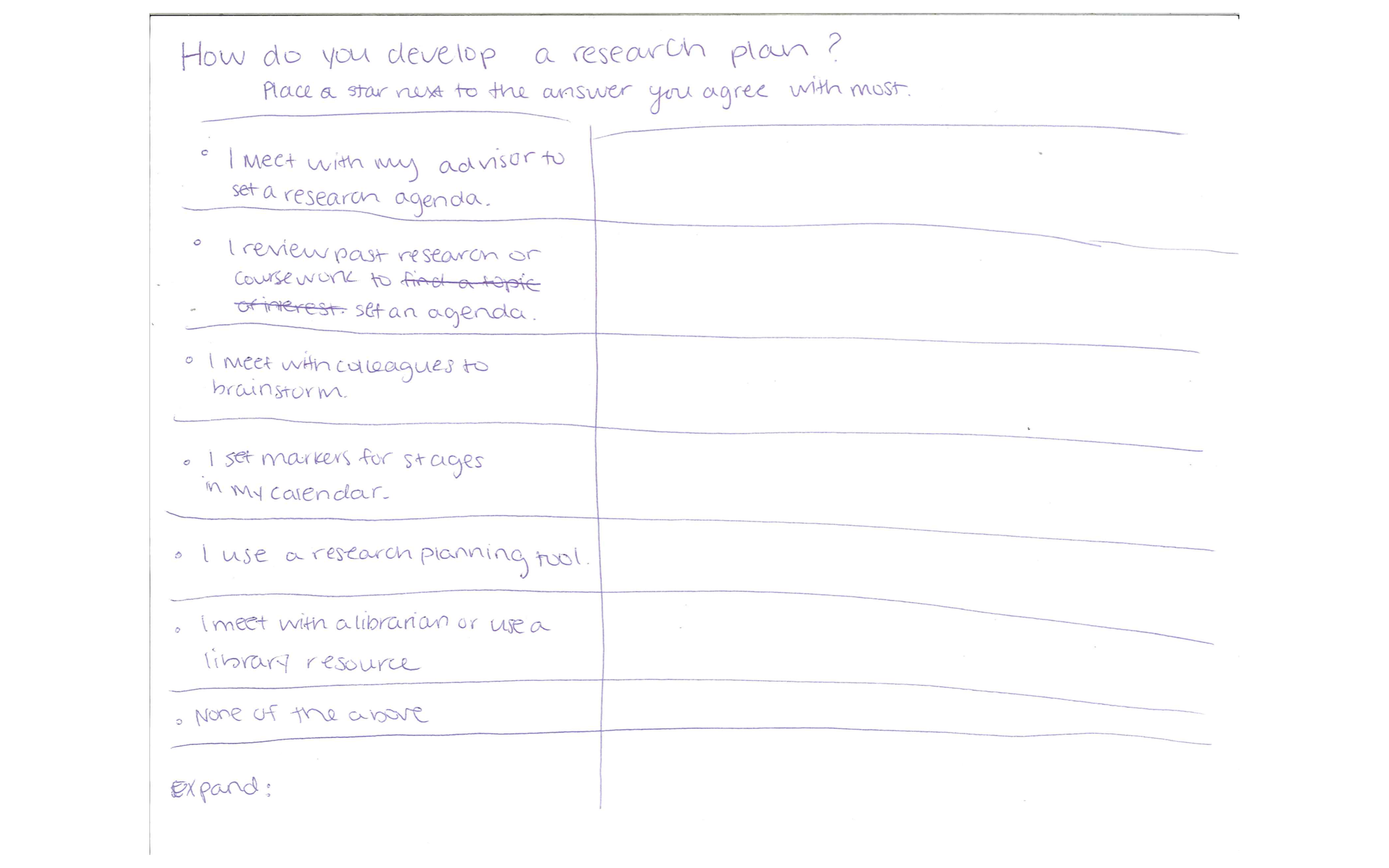
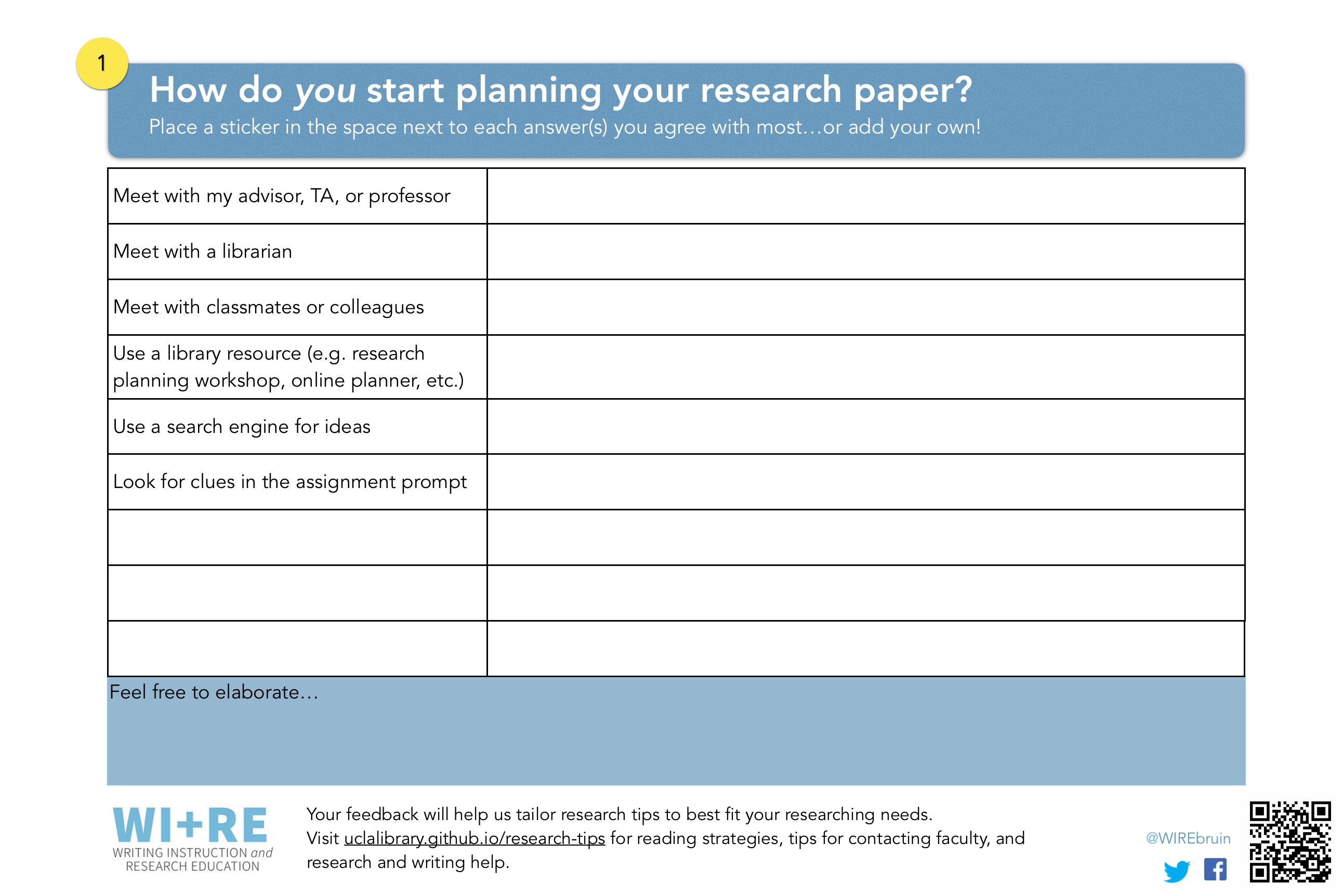
Results
The series gathered 859 responses, with 72 original write in responses. The average number of weekly responses across all libraries was 143. Undergraduates responded more overall than undergraduates, providing 492 versus 367 responses. Thus, undergraduate responses comprised 57% of responses, and graduate responses comprised 43%. Powell garnered the largest number of responses at 488, though two posters were placed in Powell (the entrance to ‘Night Powell’ and the rotunda), which should be taken into consideration. After Powell, Biomed had the next largest number of responses at 285, followed by SEL with 86 responses. 15 responses came from social media polls. Week two of the series gained the most traction, with 267 responses, followed by week one at 141 responses, week five at 113, week three at 111, the demo week at 100, week four at 65 and week six at 62.

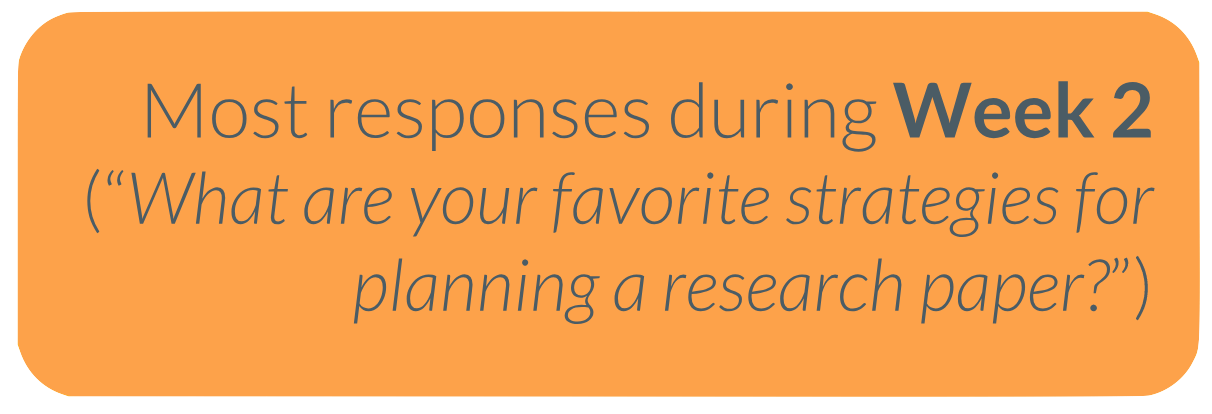
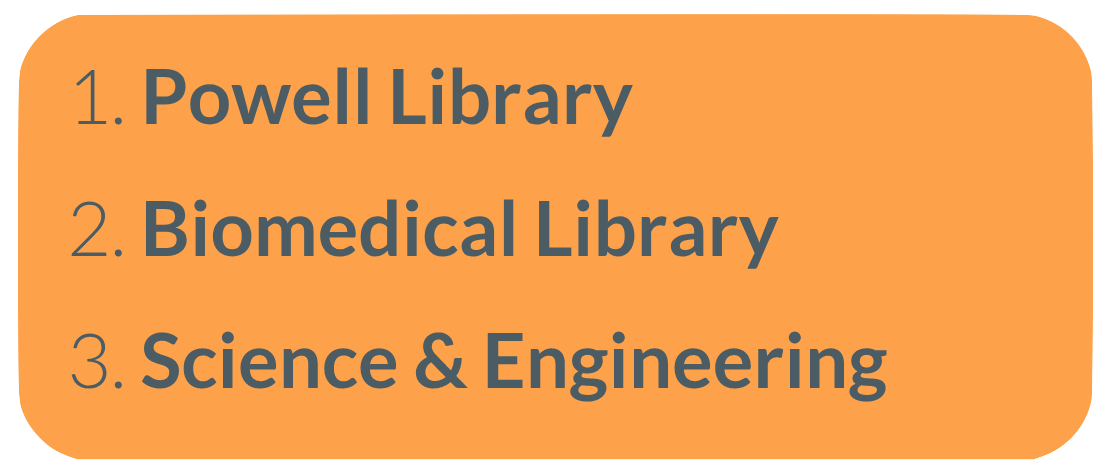
Discussion
These results have implications for the focus of future instructional tutorials by revealing current research practices and illuminating areas that students are not considering. For example, most survey respondents resorted to using a website for managing citations, which provides space for educating students about Zotero by comparing it to a website they might already use like bibme. Google Scholar was selected more frequently than a library database for finding citations, so this opens again up an opportunity for educating students on the differences between Google Scholar and a library database in a way that presents how easy library databases are to use. Lastly, the finding that many students prefer to keep their research private encourages a conversation around the benefits of sharing research and communicating scientific inquiry to the public. Many of the write in options focused on interacting with a specific library staff at the Biomedical library, and the consistency of these responses supports the benefit of having a public facing and lively staff person interacting with students and breaking down the boundaries and barriers of library interaction. Besides content and resource implications, there are also insights from this project that can influence similar future projects. The number of answers peaked at week two, which also coincided with the highest number of original write in options. Number of answers fluctuated over time, but stayed strongest and most consistent within the first three weeks, which may indicate that a shorter and condensed series may capture attention from start to finish most effectively, and that 3-4 weeks would be a more ideal time timeframe. Finding new ways to encourage write in options may help increase overall interactions as well.
SCIL Works 2019
Jen and Kian gave a presentation on the interactive poster series at SCIL Works 2019! Check out the slides below!
Want to make your own interactive poster series?
We’ve created a toolkit that contains everything you need to make your own interactive poster series. Click the button below to get started!
About this post
Authors
Contributors
Alicia Reiley, April Zhou, Ben Alkaly, Carlos Zamora, Cassandra Bautista, Courtney Hoffner, Doug Worsham, Doug Daniels, Emily Teng, Jade Alburo, Jamrensze “J-Mi” De Leon, Jeannie Chen, Joseph Babi, Juan Díaz, Juan Jaime, Marisa Méndez-Brady, Renee Romero, Sophia Wu, Taylor Harper